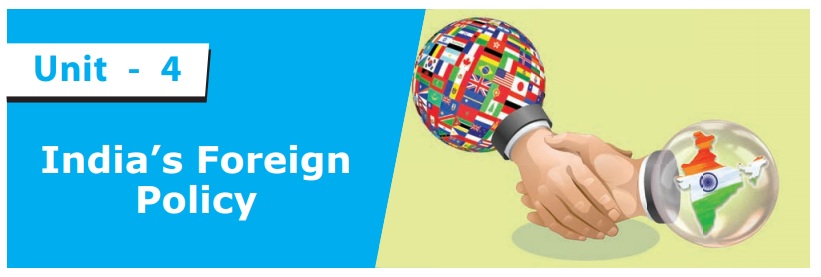Chapter: 10th Social Science : Civics : Chapter 4 : India’s Foreign Policy
India’s Foreign Policy
India’s Foreign Policy

Learning Objectives
After studying this lesson, students will be able to
• Identify the basic principles of India’s foreign policy
• Explain the meaning and significance of non-alignment
• Analyse the stages of our foreign policy
• Explain the importance of foreign policy
• Recognise the difference between domestic policy and foreign
policy
Introduction
Foreign
policy can be defined as a country’s policy that is conceived, designed and
formulated to safeguard and promote her national interests in her external
affairs, in the conduct of relationships with other countries, both bilaterally
and multilaterally. It seeks to secure the best interests of the people,
territory and economy of the country. It is a direct reflection of country’s
traditional values and overall national policies, her aspirations and
self-perception. Nations have also been interdependent. Interdependence has
been an incontrovertible fact of international relations. The main tools of
foreign policy are treaties and executive agreements, appointing ambassadors,
foreign aid, international trade and armed forces.
The Ministry of External Affairs of India also known as Foreign
Ministry comes under Government of India is responsible for the conduct of
foreign relations of India. The foreign Service Training Institute, New Delhi
established in 1986 provides training for officers of Indian Foreign
Services(IFS).
The Constitution of India 1950 Article 51
Lays down Directive Principles of India’s foreign policy.
The state shall endeavour to
• Promote International peace and security
• Maintain just and honourable relations between nations
• Foster respect for international law and international
organisation
• Encourage settlement of international disputes by arbitration
Related Topics